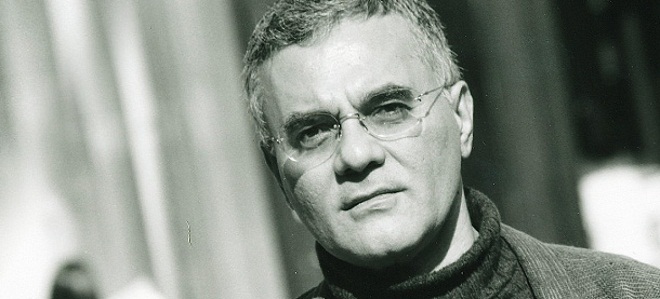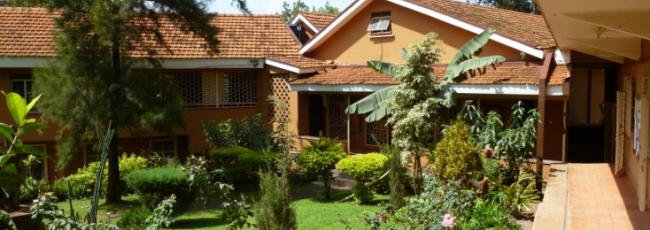By Prof. Venansius Baryamureeba
(Former Vice Chancellor, Makerere University)
“No horse gets anywhere until he is harnessed. No steam or gas drives anything until it is confined. No Niagara is ever turned into light and power until it is tunneled. No life ever grows great until it is focused, dedicated, disciplined.” Harry Emerson Fosdick

Prof. Mahmood Mamdani was recruited as Executive Director of Makerere University Institute of Social Research (MISR) when I was serving as Vice Chancellor of Makerere University. During the interviews for the job, one of his selling points was starting a five year PhD by coursework and research that would build research capacity in the humanities and social sciences disciplines at Makerere University and the region. Prof. Mamdani also made it clear that he wanted to change the focus of MISR from consultancy based institute to a respected research institute of global standing. As Appointments Board we were satisfied with his overall performance and agreed to recruit him on his terms of spending 75% of his time at Makerere University and 25% at Columbia University every year. His joint appointment at both Makerere University and Columbia University would enable him to mobilize resources including financial resources from the USA and beyond since he would be able to use his profile at Columbia University when necessary.
After his recruitment, Prof. Mamdani immediately worked on the curriculum of the PhD programme that would be housed at MISR but implemented by selected staff in the humanities and social sciences disciplines from Makerere University and beyond. As much as Mamdani spearheaded the development of the curriculum for the PhD programme, the Faculty of Social Sciences and Faculty of Arts that later merged to form the College of Humanities and Social Sciences where MISR belongs reviewed the curriculum before it was presented to Senate as a University programme. After approval by Senate and Council, I did fast track the accreditation of this Makerere University PhD programme with the National Council for Higher Education (NCHE) when Prof. Abdul Kasozi was still the Executive Director of NCHE. The PhD by course work and research was later approved by NCHE as a Makerere University programme. So I get saddened when people keep calling it the Mamdani PhD!

With the establishment of the PhD programme at MISR definitely the duties of the PhD holders at MISR had to change to incorporate the new demands of this programme that included teaching and supervision. So at the inception of the implementation of this PhD programme; Prof. Mamdani came back to management with a proposal to vary the workload terms of all PhD holders at MISR from 100% research to 75% research and 25% teaching and supervision on the PhD programme. Management advised Prof. Madmdani that it was not necessary to take the proposal to the Appointments Board since as Executive Director MISR he had powers to vary duties of staff under his supervision. ‘’Every letter of a staff of Makerere University has this provision…. Undertake any other duties assigned to you by your supervisor’’.
Appointment letters are generic and cannot include the all details. So he was advised that in his capacity as Executive Director to put it in writing for all PhD holders at MISR that their load would now constitute 75% research and 25% teaching and supervision on the PhD programme, which he did. Management also worked with him to have more PhD holders recruited at MISR by the Appointments Board on similar terms of 75% research and 25% teaching and supervision on the PhD programme. It should be noted that 25% workload is just 10 hours per week which can be done in one day.
World over doctorate/ PhD students and post doctorate fellows (postdocs) are always given at least 25% tutorial and or teaching load per week under the guidance of their supervisors/advisors. “Knowledge exists to be imparted”, Emerson. So it’s shocking that a PhD holder, who is a research fellow, is completely opposed to an otherwise routine practice of taking on 25% teaching and supervision workload. It is also a common practice to find research fellows involved in teaching and supervision at (post)graduate level at almost all the best Universities across the globe.
Even back home here in Uganda, take the case of a Vice Chancellor who is appointed fulltime in administration. This did not stop for example Prof. Frederick IB Kayanja to continue teaching and supervising for the 25 years he served as Vice Chancellor of Mbarara University of Science and Technology. Similarly Prof. LS Luboobi continued teaching and supervising students at Makerere University while he was serving as Vice Chancellor. Prof. Ddumba still teaches and supervises students in the College of Business and Management Sciences despite the fact that he serving as Vice Chancellor, Makerere University. I can mention more Vice Chancellors. Even I continued to teach and supervise masters and PhD students when I was serving as Dean and Vice Chancellor. So if a Vice Chancellor can still engage in teaching and research even when he/she is not required why would a PhD research fellow refuse to take on teaching and supervision at PhD level when these have been made part and partial of the normal duties in writing by the supervisor? (continued on page 2)
 The Independent Uganda: You get the Truth we Pay the Price
The Independent Uganda: You get the Truth we Pay the Price


